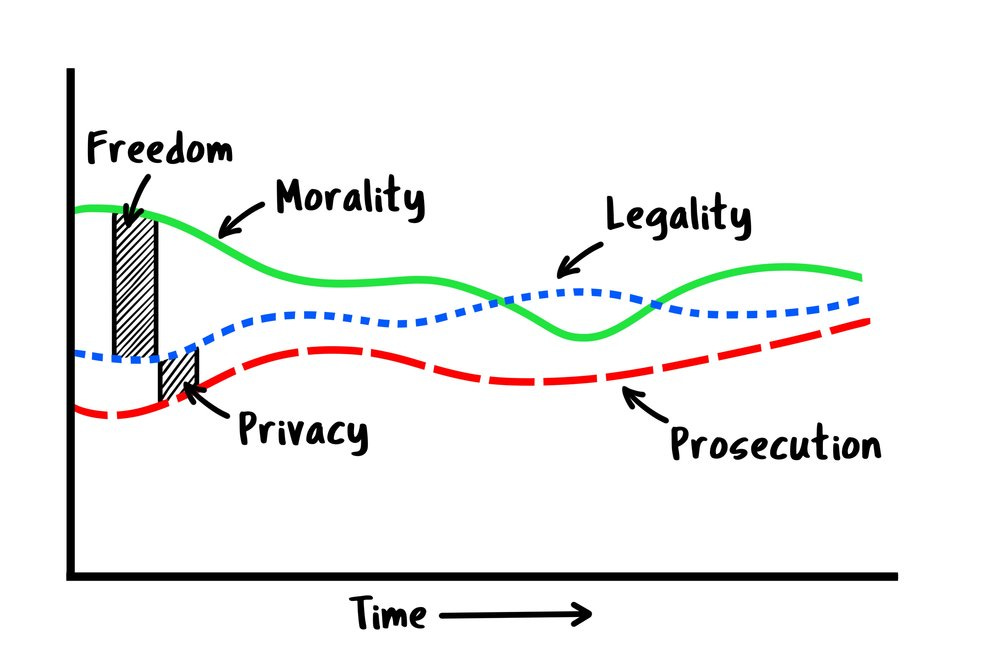Privacy As A Moral Buffer
Epistemic Status: Overly Opinionated
There will always be a "gap" between morality and law. Sometimes the gap is "loose", in which case people have more freedom. (This doesn't necessarily have to be a good thing, e.g. sectors lacking regulation.) Sometimes the gap is too "tight", where our rights are infringed upon and the law is overbearing.
Privacy is what protects us from the latter. In that case, though the gap between morality and law is too small (or negative), privacy injects a gap between legality and prosecution. This means we need privacy the most around ethically ambiguous issues (abortion, religion, sex, etc…). For example, many countries and states have laws prohibiting sexual acts like adultery and sodomy, but people are protected by the privacy of their homes. However, this argument does hinge on the belief that laws around ethically ambiguous issues are generally worse than no/minimal laws.
Over time, societal morality and morality according to our legal system will converge. As we gain certainty in our moral beliefs, our laws will update to closer fit our new morality, giving us more confidence to bring law and prosecution closer together; we shouldn’t be surprised as over time we lose the privacy we once had.
Privacy is not strictly good. Privacy works against prosecution, both just and unjust; more privacy makes it harder to catch true criminals.
As privacy is a double edged sword, every conversation around it must be nuanced. Trite comments like "if you have nothing to hide you have nothing to fear" miss the subtlety of the discussion. Judging a new privacy development is always a question of weighing the benefits against the detriments in a utilitarian fashion.
Useful Links

